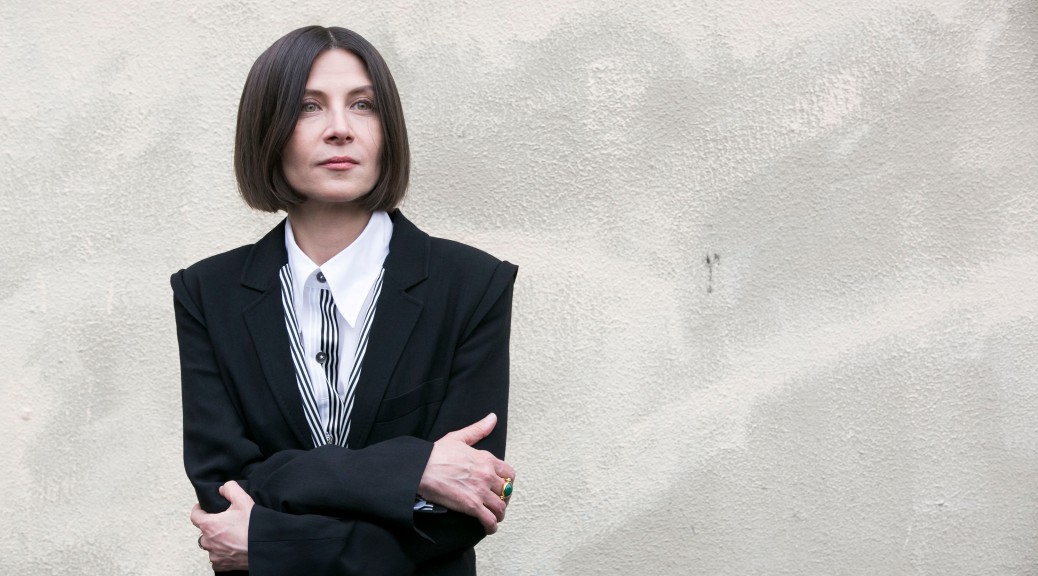
Say, its only a paper moon
Sailing over a cardboard sea
But it wouldn’t be make-believe
If you believed in me
Desperate as I always feel after finishing a Murakami novel to write up something profound and properly expressive of what his work seems to always so easily do to me, I never have until now. It always feels futile, foolish–I feel like a three-year-old who has seen a supernova; it’s nearly impossible to really articulate what I’ve encountered, yet perhaps a rich, ambivalent sensory befuddlement is all one can hope for in art. I feel this way more than ever after finishing his most recent and hand-achingly thick masterpiece, but here I am nonetheless.
1Q84 feels like quintessential Murakami, full of surreal moments both dazzling and (to this reader, enjoyably) mundane, cats, sadness, loneliness, death, hope, the ethereal and the grubbily all-too-real. Everyone has lost something, and everyone is looking looking looking. I can’t ever get over the strange and deliriously paced tone of this and his other books, a tone that in my experience is some mixture of both the translation process and Murakami’s indelible presence. It feels comfortable but a bit askew, which of course fits into the Murakami Mode almost too perfectly. If I say that the phrases and paragraphs always seem slightly wary and confused, it isn’t a critique of either of those to aspects; rather, I genuinely enjoy the tentative feeling of almost literally every line in the book. There’s a sad but quiet intensity, anxiety hanging over everything, it’s beautiful but off-putting (not unlike the double moons hanging in the sky of this somehow-but-not-exact-alternate 1984 Tokyo, one normal and one smaller, dented, green).
Many people seem to experience (whether they enjoy it or not) the distinct feeling that Murakami bleeds over into their real world somehow, taints them — this is absolutely the case for myself, it’s always been the hallmark to me of fiction that has a special staying power, has an elusive brilliance. I honestly don’t feel like I’ll ever look at the moon again with remembering this book; even moments of transit seem to draw it quickly back to my memory, as the characters here are always traveling in one form or another. I was struck even by stunning little coincidences while reading that seemed to signify that I, too, had somehow been pulled a little into a strange alternate reality, had become a shade of green. While sitting down to write this my cat suddenly became incessantly noisy and playful as if trying absurdly hard to keep my attention elsewhere. While reading what was to me the most intense moment of the most intense chapter near the end of the book, ‘It’s Only A Paper Moon’ sung by a very young Ella Fitzgerald came onto my Pandora station (I hadn’t even ‘Like’ed the song until then), which very honestly unsettled me for a moment. The ‘moon’ connection aside, the song appears throughout the nove as jazz and classical music one more haunt Murakami’s fiction. I had never liked a single jazz song I had ever heard until some of the music in the book sent me searching out of curiosity, and now I cannot get enough. Haunting and infectious perfectly describe this book.
I’ve seen some criticism of the book’s close, that it offers either not enough or too much closure. I suppose I’m too easy to please, to connected to what I feel is the Murakami experience I so much seek out and enjoy. I felt at peace with the ending; it’s heavily bent and untidy, but that’s one thing I love about this book and the rest of his fiction — it’s never tidy, it’s never polished or feels like, once you’re done, that the book will even fit conveniently back onto the bookshelf. I remember when reading Murakami for the first time, Kafka on the Shore, how struck I was by the duality in these surreal iconic characters and their presences–we first see Johnny Walker, a dashing and menacing presence–but then we get…KFC’s Colonel Sanders!? This absurdity, this refusal towards perhaps easier (to write, and to read) gestures and choices. This isn’t what he ‘does’, and it’s why I’ll always come back to his work. It’s unsettling, imperfect, confused, awkward, brilliant and it will sometimes tarry, sometimes disappear without waiting for you.



